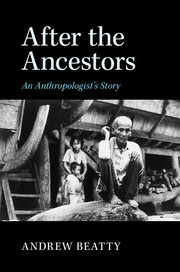Book contents
- Frontmatter
- Epigraph
- Contents
- List of illustrations
- Preface
- People
- Map
- Prologue
- 1 The statue
- 2 House key
- 3 Among women
- 4 Blood brothers
- 5 Daggers and debutants
- 6 Stormy Sunday
- 7 Three things that matter
- 8 The making of great men
- 9 A game of chess
- 10 Cholera song
- 11 Progress
- 12 Brothers and strangers
- 13 Exile and return
- 14 Field work
- 15 The chicken's neck
- 16 Good deaths and bad deaths
- 17 First family
- 18 Blessing
- 19 Half an egg
- 20 Waiting
- 21 Death of a chief
- 22 Ama Jonah at bay
- 23 Unravelling
- 24 The ethnographer and his double
- Epilogue
- Index
11 - Progress
Published online by Cambridge University Press: 05 March 2015
- Frontmatter
- Epigraph
- Contents
- List of illustrations
- Preface
- People
- Map
- Prologue
- 1 The statue
- 2 House key
- 3 Among women
- 4 Blood brothers
- 5 Daggers and debutants
- 6 Stormy Sunday
- 7 Three things that matter
- 8 The making of great men
- 9 A game of chess
- 10 Cholera song
- 11 Progress
- 12 Brothers and strangers
- 13 Exile and return
- 14 Field work
- 15 The chicken's neck
- 16 Good deaths and bad deaths
- 17 First family
- 18 Blessing
- 19 Half an egg
- 20 Waiting
- 21 Death of a chief
- 22 Ama Jonah at bay
- 23 Unravelling
- 24 The ethnographer and his double
- Epilogue
- Index
Summary
One idle afternoon a group of neighbours were leafing through a picture book we had brought with us. Scenes of snow, cities, cathedrals and trains: they shook their heads in disbelief. Were these things real or were they painted, like the pictures on the religious teacher's walls? And was that where we belonged, in that frozen, distant utopia? What brightness, what variety … what immense wealth! It was sensational and yet somehow uninteresting except, fleetingly, as a mirror to themselves. Ama Festi seemed to sum up the feeling when he snapped the book shut and commented with simple finality: “In Nias we are poor,” adding, as if it had just occurred to him: “We are poor because we kill pigs and buy women.”
This was true in a way, and yet others less preoccupied with the good life, less indebted to their pleasures, saw things differently: Ama Ya'a, for example, cousin of the fighter and one of the poorest men in the village. Ama Ya'a certainly knew about poverty. He farmed a remote patch of land near Hiliana'a and lived in a tiny hut owned by the religious teacher to whom he was also paying off a high-interest loan. From the beginning I had been on friendly terms with him. On the morning after we first arrived from Gunung Sitoli, when no one else had thought we might need food, he had brought us a huge bunch of bananas. Since then he had done us many small favours, always tactfully refusing a return. He was different from other people, but I couldn't see why. What usually happened was that we would give someone a present, either in thanks or to consolidate a relation, and the person would start worrying about what had made them deserve it. There must surely be some mysterious debt on our part (which, in a general way, there was), a debt which justified them in pressing for more.
- Type
- Chapter
- Information
- After the AncestorsAn Anthropologist's Story, pp. 158 - 171Publisher: Cambridge University PressPrint publication year: 2015

